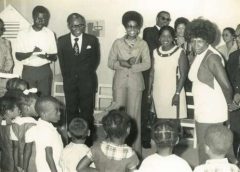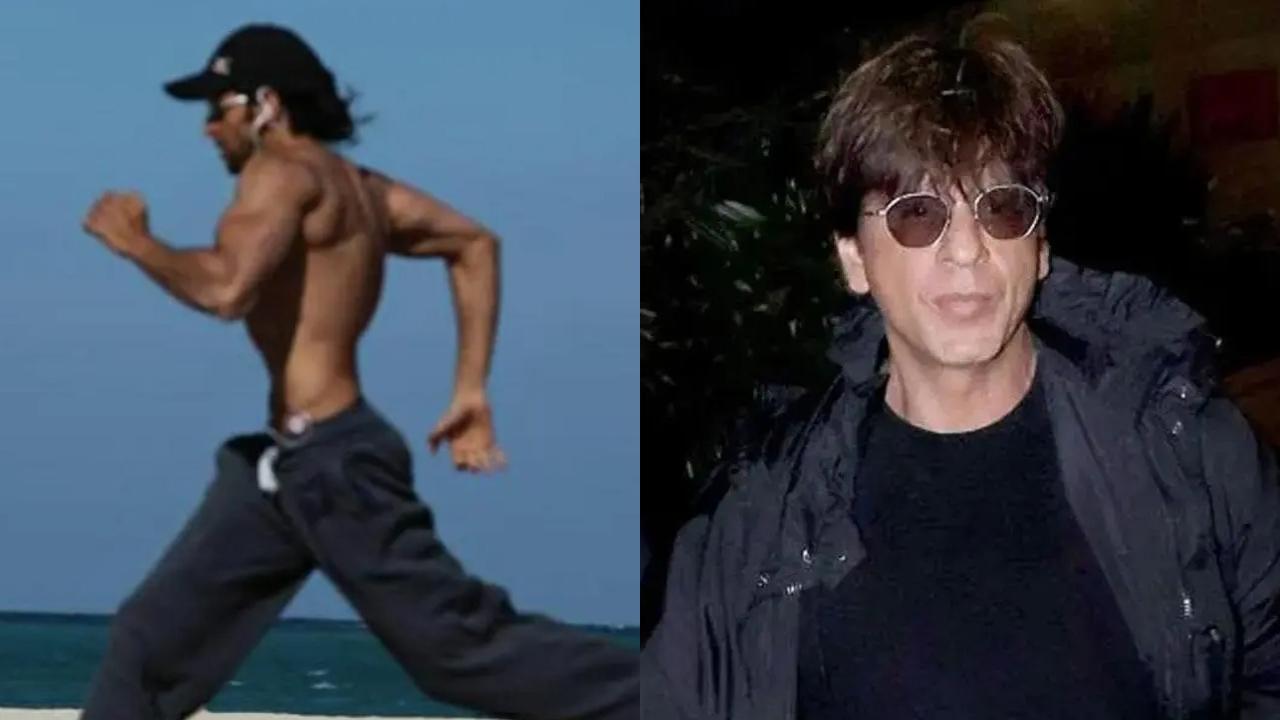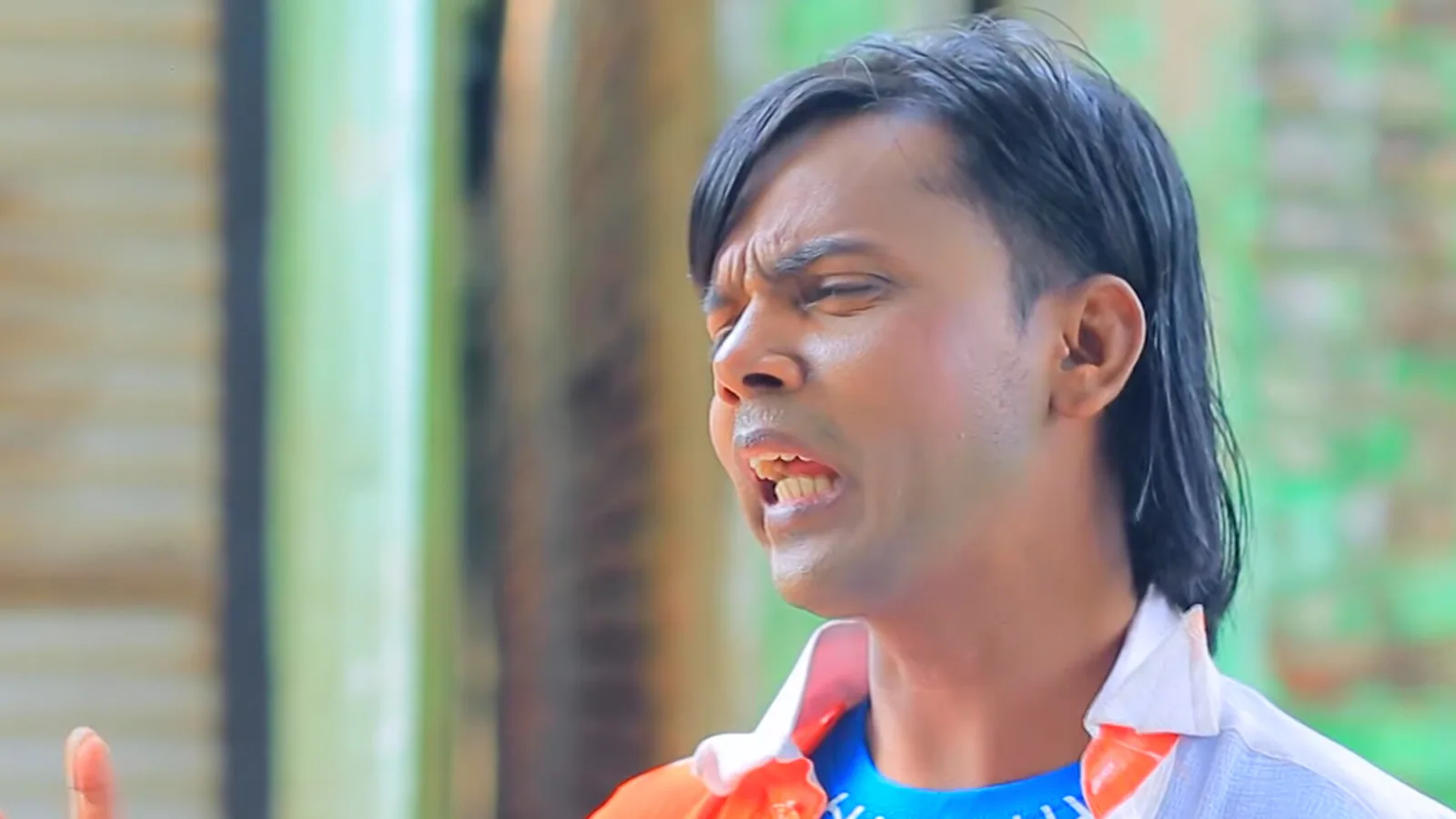
Beverley Manley, Afrocentric Icon in Hair & Fashion
[ad_1]
One of Manley’s many signature looks — the afro, suit, and dark glasses — the uniform of black revolutionaries (Beverley Manley Duncan)
Beverley Manley Duncan is in my opinion, Jamaica’s first fashion icon. In the 1970s, she married glamour to diplomacy as she sported loud African prints and a high afro while meeting international heads of state. Wife of Prime Minister Michael Manley, founder of the Jamaican Women’s Movement and rabble-rousing voice of the people, she communicated effectively through her words and equally masterfully in her imagery. She built a powerful persona bordering on myth. Even today many call her Queen. She has earned the respect and admiration of her people. Before becoming a social justice powerhouse, Beverley posed for the camera and dazzled as a professional model. This was one of her many careers as Ms Beverley Anderson.
Beverley brought her charisma to her political life. Her clothing was memorable and meaningful as she went about transforming lives. Beverley understood the magic of a deliberate wardrobe. She dressed to communicate boldness, power, and importance. She proudly adorned herself in fashion representing Jamaica’s diverse cultural heritage. Her apparel sang “Out of Many, One People”. She wore diverse garments such as the traditional Chinese cheongsam, Indian saris, elaborate African prints, formal Western gowns, and dozens of outfits from the best local designers of the decade. She fused African and European sensibilities. She made political statements with fashion without going over the invisible, acceptable lines. Her potency is in the myriad black hairstyles she has adopted over the years. There were afros, semi-dreads, and elongated turbans. Beverley’s natural hair declared powerful statements in influential circles. Beverley’s afro commanded respect from US President Jimmy Carter, Canada’s Pierre Trudeau, and British royalty. I am Black and I am proud. Black is powerful. Black is important.
There was self-righteousness in her unapologetically coiled hair. “You can’t imagine what happened when Africa walked into Jamaica House,” said UWI lecturer, Kamau Brathwaite referring to the tumultuous public reception of Beverley’s Afrocentric style as a political figure in Jamaica. Beverley’s African fashion sense and natural hair sparked uproar in the racist and discriminatory Jamaica of the 1970s. Only a decade after Independence, many Jamaicans had warped minds that synonymised blackness with good-for-nothingness. The colonisers instilled the belief that to be black and African was to be less than. Many who subscribed to this myth were appalled to see Beverley modelling her blackness with pride. She received a ton of hate mail. Critics pleaded with her to relax her hair and ditch the African clothing. Beverley braved the criticism. She embodied signs and symbols of proud black woman. She took those controversial images into rooms where they were never expected or anticipated. She was among global black icons like Angela Davis, who had the most famous afro, and Winnie Mandela, who kept her hair wrapped in beautiful African cloths. In Beverley’s prime years, black natural hair and African fashion were controversial.
Today, if Juliet Holness, an MP and wife of current Prime Minister Andrew Holness, wore her natural hair and an African dress, the moment would be celebrated and highly photographed. As Jamaica has evolved, so has our mindset. Today, many Jamaicans embrace natural coifs and enjoy the freedom to wear Afrocentric fashions without facing discrimination. With the emerging popularity of African boutiques like Etal and numerous natural hair product lines, black pride has become fashionable. Beverley’s tribulations with her afro-centric aesthetic in the 1970s, in contrast to the rise of black beauty today, demonstrate that Jamaica has made progress towards embracing Afrocentric beauty ideals. At the same time, skin bleaching remains an issue and dreadlocks are not allowed in every school in Jamaica. We have come a long way, but there is far more room to grow in our acceptance of our Black African heritage. As we celebrate 60 years of Independence, we must reflect on where we are coming from and where we are going. Before it was cool, Beverley Manley showed Jamaica that black is beautiful and powerful. Until every black Jamaican man and woman and their surrounding communities accept the skin, hair, and physical features they are born with, Jamaica still has a long way to go in accepting our roots.
CREDIT
Photos: Beverley Manley Duncan, Wayne Sutherland and Jimmy Carter Library, Carter White House Photographs Collection
Beverley Manley Uncensored is a 4 part documentary series. Directed by Joelle-Simone Powe and produced by Adtelligent, the first and second episodes of the docuseries are available on the YouTube channel, Adtelligent TV. The next episode premieres next Sunday, August 14th, at 3:00 pm.
Beverley’s statuesque figure naturally lends itself to modelling. (Beverley Manley Duncan)
Today Beverley models sister locks. (Photo: Wayne Sutherland)
The Afrocentric aesthetic radiated black pride and power in influential circles.(Beverley Manley Duncan)
A young Beverley possessed a distinctive sex appeal.
Beverley and Michael Manley in talks with US President Jimmy Carter. (Jimmy Carter Library, Carter White House Photographs Collection)
Beverley was often garbed in Afrocentric prints and magnificent head wraps. Here she stands with Dr Albert Manley, the first black president of Spelman College, and his wife. (Beverley Manley Duncan)
Beverley’s posture is invariably regal and upright.(Beverley Manley Duncan)
Joelle Simone Powe, Cultural Anthropologist and Documentarian, Director of Beverley Manley Uncensored.
Penetrating eyes command respect and intrigue. (Beverley Manley Duncan)
[ad_2]
Source link


